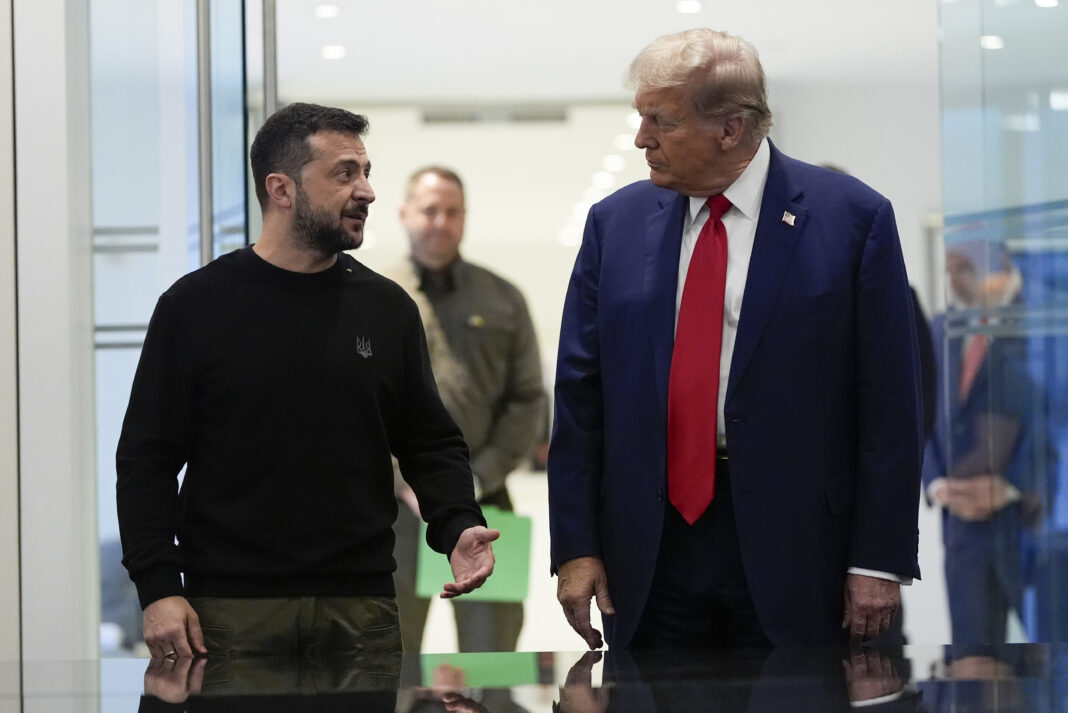SAN DIEGO — Young children, some unable to reach the floor while sitting in courtroom chairs, have found themselves without legal representation in immigration court due to significant funding cuts implemented during the Trump administration. Advocacy organizations that assist these vulnerable minors, who arrive in the United States unaccompanied by a parent or guardian, have raised alarms about the heightened risks they face as a result of the recent suspension of a vital support program.
According to these organizations, the Trump administration’s decision to halt a $200 million contract with the Acacia Center for Justice has led to an immediate cessation of services intended to represent and navigate legal proceedings for unaccompanied children. Daniela Hernandez, an immigration lawyer providing pro bono services to around 60 minors in Pasadena, California, highlighted the urgency of the situation during a press briefing, noting that some children, as young as two years old, have hearings scheduled imminently.
“What is a 2-year-old client expected to do in court without her attorney?” Hernandez questioned. “Who advocates for her? Who will clarify the complexities of the legal immigration system for her and other foster care clients who are without any caring adult to support them in the United States?”
The Interior Department did not provide a detailed rationale behind the suspension of the Acacia Center’s work, merely stating it was a result of “factors outside of your control” and specified that it should not be construed as a reflection of inadequate performance. This suspension will remain in place until further notice. The department stated that while it engages in partnerships with other agencies, it neither funds nor operates the program in question and could not provide more specific information. Additionally, the Department of Health and Human Services, which oversees services for unaccompanied migrant children, did not respond to inquiries regarding the issue.
In a recent immigration court session in San Diego, a five-year-old girl from Mexico facing removal proceedings captured attention as Judge Olga Attia offered her coloring books to help alleviate some of the stressful circumstances. The judge communicated the details of the case to the girl, along with her two siblings who were also apprehended while crossing the border without their parents in March 2024. Their mother was present at the hearing but indicated they could not afford legal representation. The judge suggested a nonprofit organization that could provide support and later arranged another hearing for May.
Nonetheless, the termination of the Acacia Center’s contract further limits options for affordable legal aid for this family and countless others in similar predicaments.
Acacia collaborates with a network of 85 organizations across the nation, aiding children under 18 years old. Approximately 26,000 migrant minors receive direct legal representation under the now-suspended contract, while around 100,000 receive general legal advice, often through information sessions led by attorneys in government-supported shelters shortly after their arrival in the U.S.
In contrast to criminal court proceedings, individuals facing deportation do not have a guaranteed right to representation, although they have the option to hire private attorneys. Notably, there has been an acknowledgment of the specific vulnerabilities faced by children navigating the immigration court system alone, which have gained some protections through the Trafficking Victims Protection Act of 2008. This legislation encourages the provision of legal assistance to children embroiled in deportation cases, even though it does not mandate representation for every individual.
The Acacia Center and its partners are responsible for recruiting and training lawyers to volunteer their services to these children. Unaccompanied minors may apply for asylum, a juvenile immigration status, or visas intended for victims of sexual exploitation, but many of these minors face language barriers and require interpreters.
Jennifer Podkul, vice president for policy and advocacy at Kids In Need of Defense, emphasized the challenging environment for these children. “They find themselves in adult-like situations with potentially dire consequences,” she explained, noting that only about half of the minors in immigration court have access to legal representation.
Attorneys and experts have expressed concerns that these children will become stuck in the immigration system, and many cases may not progress without proper legal guidance. Melissa L. Lopez, executive director of a nonprofit benefiting from the program now suspended, asserted that there is a legal and ethical imperative to continue assisting the approximately 2,000 children they serve.
“We are committed to prioritizing our clients’ well-being,” declared Lopez, whose Texas-based organization also conducted legal educational sessions in shelters, although those efforts have been curtailed due to the suspension. “These children will now be expected to attend court without guidance or knowledge,” she lamented.





